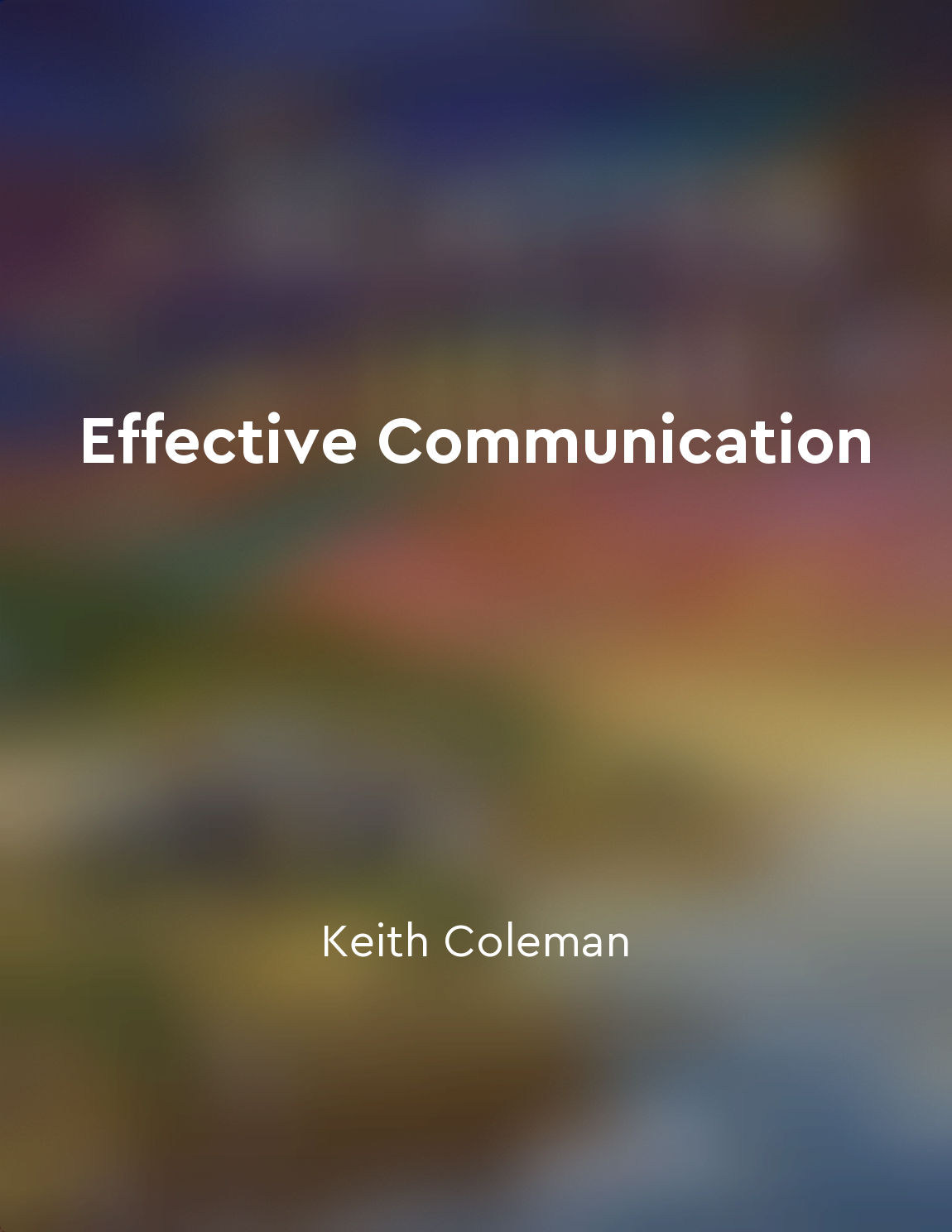Avoid destructive conversational patterns from "summary" of Conversational Intelligence by Judith E. Glaser
When engaging in conversations, it is crucial to be mindful of the patterns that may lead to destructive outcomes. These patterns can manifest in various forms, such as defensiveness, blame, judgment, or power struggles. When we fall into these patterns, our conversations can quickly derail, leading to misunderstandings, conflict, and even damaged relationships. One common destructive conversational pattern is the tendency to resort to blame when faced with challenges or conflicts. Blaming others not only deflects responsibility but also creates a divisive atmosphere where trust and collaboration are compromised. Instead of pointing fingers, it is important to focus on understanding the root causes of the issue and working together towards finding solutions. Another destructive pattern is the use of judgmental language, which can make others feel attacked or devalued. When we judge others, we shut down the possibility of open communication and mutual respect. It is essential to practice empathy and seek to understand different perspectives without jumping to conclusions or making assumptions. Defensive behavior is yet another destructive pattern that can hinder effective communication. When we become defensive, we are more focused on protecting ourselves than on listening and empathizing with others. This can escalate tensions and prevent meaningful dialogue from taking place. It is important to cultivate a sense of openness and vulnerability in our conversations to foster trust and connection. Power struggles can also arise when individuals seek to assert their dominance or control in conversations. This can create an imbalance of power and inhibit authentic dialogue. By recognizing and addressing power dynamics, we can create a more inclusive and collaborative environment where all voices are heard and valued. In order to avoid these destructive conversational patterns, it is essential to cultivate a mindset of curiosity, empathy, and respect. By approaching conversations with a genuine desire to understand, connect, and collaborate, we can create a positive and constructive dialogue that leads to mutual growth and learning. Let us strive to be mindful of our language, tone, and behavior in conversations, and work towards building a culture of trust, respect, and cooperation.Similar Posts
Active listening involves responding to the speaker
Active listening goes beyond just hearing the words that someone is saying. It involves actively engaging with the speaker by r...
Use silence strategically to allow for reflection and understanding
When engaged in a crucial conversation, the ability to use silence strategically can be a powerful tool. By allowing for moment...

Understanding different perspectives is crucial
In order to effectively communicate with others, it is essential to acknowledge and understand different perspectives. Each per...
Speak clearly and confidently
To communicate effectively, it is essential to speak clearly and confidently. When you speak clearly, you are able to convey yo...
Stay focused on mutual purpose during crucial conversations
When engaging in crucial conversations, it is essential to keep your attention on the mutual purpose that you share with the ot...
Nonverbal cues can speak louder
Nonverbal cues are powerful indicators of a person's true thoughts and feelings. They can often reveal more than words ever cou...
Communication is a skill that can be developed
Effective communication is not an innate talent possessed by a select few; rather, it is a skill that can be honed and develope...
Practice mindful breathing to calm yourself
To calm yourself, you can practice mindful breathing. Sit or lie down in a comfortable position and bring your awareness to you...

Transparency builds trust
When we are transparent in our communication, we are open and honest about our thoughts, feelings, and intentions. This opennes...
Stay focused on the issue at hand
When resolving a conflict, it's crucial to keep your attention fixed firmly on the matter at hand. This principle is essential ...

